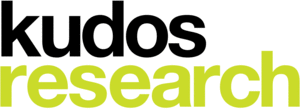During 2020-21, the sector has been hit hard by the Covid-19 pandemic. Due to a combination of economic downturn, budgets being cut, businesses not being able to operate as normal and just general uncertainty, many research companies found themselves with significant downturns in revenue and in the difficult situation of having to either furlough staff or make redundancies.
In order to get a better understanding of how businesses across the sector were faring and how they felt about the evolving situation, MRS conducted three waves of research, delivered by Watermelon Research.
The most recent wave of research, conducted in April and May 2021, shows that although the situation has improved for many businesses in the sector, there are still two-thirds who have seen a decline in revenue since the beginning of the pandemic.
Small businesses – those with fewer than 10 employees and those with revenues less than £1m per annum – are the most likely to say their revenues have been significantly affected. We often talk about how this is a sector driven by people, and sadly over the last year our people have had some hard times to endure. Six in 10 businesses within the sector have furloughed staff at some point since the beginning of the pandemic, and of those 35% have since gone on to make redundancies.
The biggest impact in terms of the type of research conducted has, inevitably, been face-to-face – both quantitative and qualitative. Back in April 2020, eight in 10 research companies who offered faceto-face said that this work had stopped completely, whether it was quantitative or qualitative.
A year on, this has changed somewhat for quantitative, with four in 10 saying this stream of work is still at a standstill, but the picture is different for qualitative, with around six in 10 businesses saying that they were still not doing any face-to-face qualitative work.
The obvious flip side to this has been the increase in online qualitative. While in April/May 2020 there was already an increase in agencies reporting that they were doing more online qualitative, it was later in the year that we really saw a big shift, and this has continued. By April/May 2021, almost seven in 10 said they had increased the amount of online qualitative work being conducted – the largest uplift of any methodology seen across the last year.
Another major shift that has been seen in the last year has been the need to work from home. Although it has not been without its challenges, particularly on mental wellbeing, the majority of companies within the sector are anticipating some form of remote working continuing beyond the lockdowns.
One in three are planning on offering their people full flexibility to work from home or the office as they wish, and a further one in three say they anticipate a set two/three day hybrid split between the office and remote working. The majority of the remainder were either already fully home working pre-pandemic, or anticipate full home working to continue.
As businesses look ahead to 2021/22, the key things leaders anticipate are:
- Greater flexible and remote working than before ( 78%)
- A move to some form of hybrid working ( 74%)
- Continuing to grow the business ( 64%)
- A business re-focus or change in the type of work done ( 63%)
- Higher revenues than in 2020 ( 61%)
Coming out of 2020/21, levels of optimism are much higher than they were at the start of the year, with around two-thirds of business leaders feeling at least some level of optimism for both the shorter term and the next 12 months. This is driven by seeing new business coming back, developing (and redeveloping) client relationships, and a general sense that there is more certainty and stability in the economy in general.
However, we are not out of the choppy waters, and 15% of businesses still feel pessimistic about their prospects, either due to the sector they are in or the type of work they do, or because they are still feeling the impact of uncertainty and loss of momentum that has come from the last year.
This research, and what I have heard from conversations with people across all parts of this sector, reinforces some of our core strengths:
- The critical role of research and evidence to support business and policy decision-making
- The entrepreneurial ability and agility to reinvent and provide solutions to meet the market’s needs
- A desire to support our people and enable them to thrive and deliver their best
- A can-do attitude and determination to succeed.
Sinead Jefferies is founder of Vela and MRS Main Board member
This article was first published in the MRS Annual Review 2020-21.








0 Comments